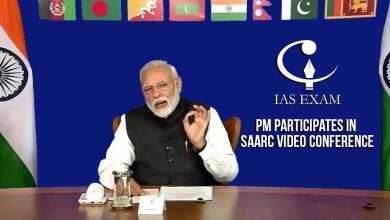EU’s China dilemma
Though the Asian giant is critical to European economic health, the political narrative is a sign of a shift in the wind
Europe and China have been major partners for a generation. According to the Global Office of the International Comparison Program at the World Bank, China and the European Union (EU) jointly account for nearly 35% of global GDP in PPP terms. Europe championed China’s case for World Trade Organization (WTO) membership and China supported the ‘European Project’. A single example is sufficient to demonstrate how critical China is for European prosperity. Between 1995 and 2012, Germany, Europe’s economic powerhouse, enhanced its industrial value by 37%, the largest chunk of which came from supply chains not in the United States but in China.
Sum and Substance
In March 2019, the EU Commission published “A Strategic Outlook”, describing China as, simultaneously, a cooperative partner, an economic competitor and a systemic rival promoting alternative models of governance. This was the product of a long process of distillation during which the political and security dimensions began to jostle with the economics that had been the primary determinant of China-EU ties for two decades.
There was a growing appreciation that the balance of challenges and opportunities presented by China were shifting as its economic power and concomitant political influence grew with unprecedented scale and speed, and in ways that concerned European security.
China’s efforts to cultivate separate European sub-constituencies like the 16+1 Format with the Central and Eastern European States, and meetings with the Nordics and the Southern Europeans; the sailing of the PLA Navy into the Baltic Sea for joint exercises with Russia in 2017; cross-sectoral hybrid threats including information operations in European countries; Chinese behaviour in the South China Sea and Indian Ocean; and its targeted acquisition of key high-technology companies such as Kuka in Germany or key ports like Piraeus in Greece, began to raise red flags in the Chancelleries of Europe.
China’s economic and financial practices backed by strategic motives threatened unity and the European project itself, since it appeared to undo their efforts in terms of connectivity, regulatory frameworks and the building of a single European entity.
Thus, even before the pandemic, the “Strategic Outlook” recommended that the EU should shift towards “a more realistic, assertive and multifaceted approach” to China.
Determinants and Focus
The European debate is no longer simply about market access, industrial subsidies, over-capacity in steel and hi-tech industries; stealing of IPR and China’s assertive approach to the security, resilience and stability of digital networks. It has begun to turn towards how to balance economic co-dependency and co-prosperity with China’s strategic global intentions and efforts to seek military supremacy and its bearing on European security.
China also views Brussels as increasingly antagonistic.. Ironically, the retreat of the U.S. from global leadership is providing the Chinese with the means to take advantage, even when they no longer deem it in their strategic interests to support the “European Project”.
None of this should lead to the inference that the EU will follow the U.S. in ‘de-coupling’ or join an ‘against-China’ camp. The European Union Chamber of Commerce in China, which recently released its Business Confidence Survey 2020, says that most European businesses are chiefly “in China, for China”. European companies still hope that China’s President Xi Jinping will use this pandemic to make fundamental reforms in the way that Deng Xiaoping and Zhu Rongji did in 1992 and 1998, respectively.
India’s Role
This, then, is an opportune time for India-EU relations, but only if we do not waste the crisis. Political conditions are favourable especially after the withdrawal of the United Kingdom. The Europeans recognize India’s role in helping provide peace and prosperity in the Indo-Pacific. They see great potential in working together on technologies and issues of the future.
But we are not the only economic alternative for Europe in the aftermath of COVID-19. If the Broad-based Trade and Investment Agreement can be put back on track or, at the very least, if we conclude a new investment agreement, and if we are ready to join in high-technology collaboration including 5G and artificial intelligence, we may be able to align our stars. This will require imagination from our side, but Europe will also need to change its positions on trade in goods and be ready to accommodate India on services. The opportunity for India and the EU to build a partnership that is both economic and strategic is there for the taking in a post-COVID-19 strategic scenario.
SOURCE: The Hindu





.png)



